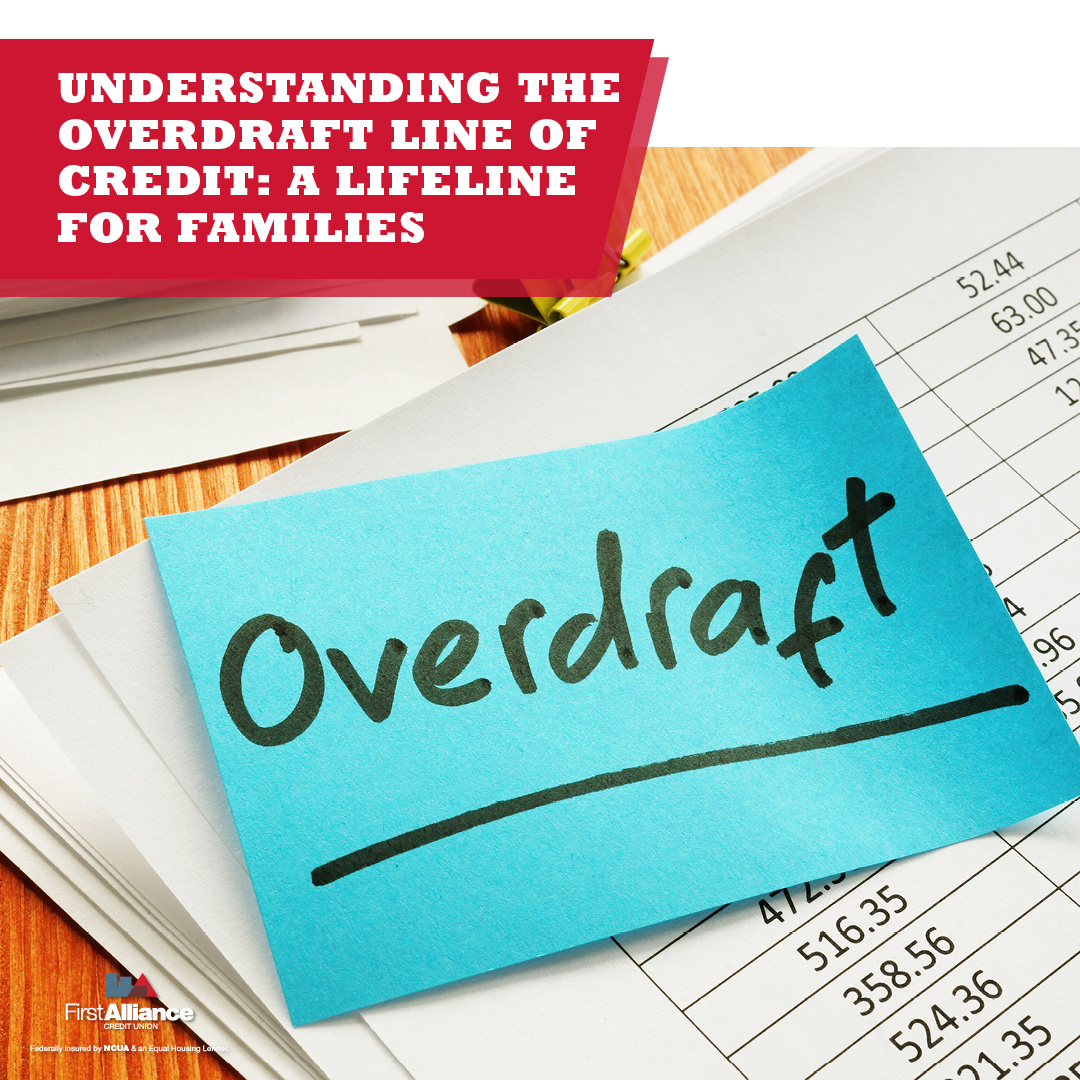Understanding the Overdraft Line of Credit: A Lifeline for Families
Imagine you've just bought a cozy new home for your family. It’s the perfect spot—big enough for your growing kids and close enough to work to avoid...
6 min read
 Kamel LoveJoy
:
Nov 28, 2024 10:09:50 AM
Kamel LoveJoy
:
Nov 28, 2024 10:09:50 AM

Paying off your mortgage early is a financial goal many families aspire to achieve. Imagine eliminating your monthly mortgage payment, freeing up cash for other priorities like retirement, your children’s education, or even that dream family vacation. However, paying off a mortgage faster requires careful planning and consideration. Let’s explore the different strategies to help you reach this goal and understand the potential outcomes each can offer.

Making extra payments is one of the most straightforward ways to reduce the time it takes to pay off your mortgage. By applying more money toward your principal balance, you’ll decrease the amount of interest you’ll pay over the life of the loan and shorten your repayment period.
Lets take the Johnsons for example, a family with a $250,000 mortgage at a 5% interest rate, decided to make an extra payment of $200 each month. Over time, this additional payment not only reduced their loan term by several years but also saved them over $30,000 in interest.

Outcomes:
Faster Loan Payoff: Even modest extra payments can shave years off your mortgage. For example, an extra $200 monthly payment on a 30-year mortgage could potentially reduce the loan term by 7-8 years.
Interest Savings: By paying down the principal faster, you’ll pay less interest over the life of the loan. This can result in significant savings—often tens of thousands of dollars.
Methods to Consider:
Monthly Extra Payments: Add a consistent amount to your regular payment each month. For example, rounding up your payment from $950 to $1,000 can have a noticeable impact over time.
Lump Sum Payments: Whenever you receive a bonus, tax refund, or another windfall, consider putting it toward your mortgage. This can drastically reduce your principal and the interest you owe.
Biweekly Payments: Instead of making one monthly payment, pay half of your mortgage every two weeks. This method results in an extra full payment each year, effectively reducing your loan term by about 4-6 years on a 30-year mortgage.
Things to Watch Out For: Some lenders may charge prepayment penalties, so it’s crucial to check your mortgage agreement or consult with your lender before making extra payments. Also, ensure that any extra payment is applied directly to the principal, not just to the next month’s payment.

Refinancing involves replacing your existing mortgage with a new one, typically at a lower interest rate or with a shorter loan term. Refinancing to a shorter term, such as from a 30-year mortgage to a 15-year mortgage, can be a powerful strategy to pay off your mortgage faster.
For example the Garcia family had a 30-year mortgage at a 7.5% interest rate. After five years, they refinanced to a 15-year mortgage at 6.5%. While their monthly payment increased, they were able to pay off their mortgage 10 years earlier and save over $100,000 in interest.
Outcomes:
Shortened Loan Term: Refinancing to a shorter term significantly reduces the time it takes to pay off your mortgage. Instead of taking 30 years, you might pay off your mortgage in 15 or even 10 years.
Lower Interest Payments: Shorter-term loans usually come with lower interest rates. Over the life of the loan, this can result in substantial interest savings.
Considerations:
Higher Monthly Payments: While you’ll save money in the long run, your monthly payments will likely increase with a shorter loan term. Make sure your budget can accommodate this change.
Closing Costs: Refinancing comes with closing costs, which can be 2-6% of your loan amount. It’s essential to calculate whether the interest savings outweigh these upfront costs.
When to Refinance: Refinancing is most beneficial when interest rates are lower than your current rate, and you plan to stay in your home long enough to recoup the closing costs through the savings on interest.
Another smart way to save money on your mortgage is by getting rid of your Private Mortgage Insurance (PMI). If you wait to refinance when you have equity of at least 20%, you can eliminate the need for PMI, which can add significant savings to your monthly payments. This strategic move can further reduce your overall mortgage costs and help you achieve financial freedom sooner. Don't overlook the opportunity to save on unnecessary expenses like PMI, as every little bit adds up in the long run.

Downsizing involves selling your current home and buying a smaller, less expensive one. This strategy can significantly reduce your mortgage debt or even eliminate it entirely if you’re able to pay cash for the new home.
For example the Smiths, with their children now grown, decided their 5-bedroom home was more space than they needed. They sold their house, paid off the mortgage, and used the remaining equity to buy a smaller home with no mortgage. This allowed them to save on monthly housing costs and invest more in their retirement.
Outcomes:
Eliminate or Reduce Mortgage Debt: Downsizing can help you either pay off your mortgage entirely or reduce the balance significantly, allowing for quicker repayment.
Lower Monthly Costs: With a smaller home, you’ll typically have lower utility bills, maintenance costs, and property taxes, freeing up more money for other financial goals.
Considerations:
Emotional Impact: Downsizing can be an emotional decision, especially if you’ve lived in your home for many years. It’s essential to weigh the financial benefits against the sentimental value of your current home.
Market Conditions: The success of downsizing depends on the real estate market. You’ll need to sell your current home at a good price and find a suitable, more affordable property.
Any extra income you receive—whether from a raise, bonus, or side hustle—can be directed toward your mortgage. This approach allows you to accelerate your mortgage payoff without cutting into your regular budget.
Example: The Johnsons, after receiving a yearly bonus, decided to put half of it toward their mortgage principal each year. By doing this, they managed to shave five years off their mortgage term and save thousands in interest.
Outcomes:
Faster Mortgage Payoff: Redirecting extra income toward your mortgage can quickly reduce your balance, especially if done consistently.
Interest Savings: Just like with extra monthly payments, applying lump sums from bonuses or raises directly to your principal will reduce the overall interest you’ll pay.
Considerations:
Budget Flexibility: Make sure applying extra income to your mortgage doesn’t strain your budget or compromise other financial goals like saving for retirement or an emergency fund.
While paying off your mortgage early offers peace of mind, it’s not always the best financial decision. Depending on your mortgage interest rate, you might be better off investing your extra money in higher-yield opportunities like the stock market or retirement accounts.
Example: The Thompsons decided to compare the benefits of paying off their mortgage early versus investing in their retirement accounts. With a mortgage rate of 3.5% and the potential for an 8% return in their investment portfolio, they chose to invest. Over 20 years, their investments significantly outperformed the savings from paying off the mortgage early.
Outcomes:
Potentially Higher Returns: If the return on your investments is higher than your mortgage interest rate, you could end up with more money in the long run.
Flexibility: Investments can be liquidated if needed, providing financial flexibility. However, they come with risks, especially in volatile markets.
Considerations:
Risk vs. Reward: Investing comes with risks, including the potential loss of principal. It’s important to assess your risk tolerance and the likelihood of achieving higher returns compared to the guaranteed savings from paying off your mortgage.
Tax Implications: Investments may come with tax liabilities on capital gains and dividends. Additionally, paying off your mortgage could reduce your mortgage interest deduction on your taxes.
Once your mortgage is paid off, your home equity represents the portion of your home that you fully own. This equity can be a valuable financial tool, especially in retirement. You can tap into it through options like a home equity loan, or a home equity line of credit (HELOC).
Example: The Evans family paid off their mortgage and now have $300,000 in home equity. This equity provides a safety net they can tap into for major expenses, such as home renovations or emergency fund expenses, without having to sell their home.
Outcomes:
Financial Security: Owning your home outright gives you a valuable asset that can be leveraged in times of need.
Access to Funds: You can borrow against your home’s equity at typically lower interest rates compared to unsecured loans.
Considerations:
Cost of Borrowing: While borrowing against your home’s equity can provide funds at a lower rate, it’s still debt that needs to be repaid. Failure to repay can put your home at risk.
Retirement Planning: Home equity can be a crucial part of retirement planning, especially if you plan to use a reverse mortgage to supplement your income in later years.
The decision to pay off your mortgage early depends on your financial situation, goals, and comfort with risk. For some, the peace of mind that comes from owning a home outright is worth the effort. For others, investing extra money might offer better financial returns.
Before making any decisions, consider consulting with a financial advisor. They can help you weigh the benefits and drawbacks of paying off your mortgage early versus other financial strategies. At First Alliance Credit Union, we’re here to support you in making informed choices that align with your family’s financial goals.

Imagine you've just bought a cozy new home for your family. It’s the perfect spot—big enough for your growing kids and close enough to work to avoid...

It's no secret that children’s schedules shift radically once they start going back to school. If you’re a parent, though, you’re also very aware...

Everyone knows that a successful family vacation requires a lot of planning. You’ll want to know where you’ll be going, where you’ll be staying and...